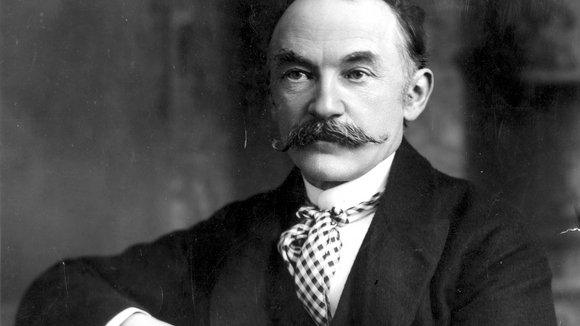Carey Mulligan turns tables on male-dominated movies
- Published

Carey Mulligan and Matthias Schoenaerts play the lead roles of Bathsheba Everdene and Gabriel Oak
This year, Oscar-nominated actress Carey Mulligan is starring in not one, but two, films where women are the protagonists. First out of the gates is an adaptation of Thomas Hardy's Far From the Madding Crowd.
You don't expect to find strong female leads in a story written 141 years ago.
But that's exactly what Carey Mulligan did when she discovered Bathsheba Everdene, the heroine of Thomas Hardy's Far From the Madding Crowd.
"She's a great character in any time," the 29-year-old says. "I think that's the thing."
"Bathsheba is very modern, she's very ahead of her time. She's so three-dimensional and fully-fleshed, which is why she's so much fun to play."
Everdene is a young woman whose life and fortunes change when she inherits her uncle's farm.
The story provides an unflinching portrait of love in all its forms, from unscrupulous, manipulative adoration to fully-fledged romance, as Everdene is torn between three very different suitors.
They are sheep farmer Gabriel Oak (Matthias Schoenaerts), reckless sergeant Francis Troy (Tom Sturridge) and mature bachelor William Boldwood (Michael Sheen).
Mulligan - best known for Drive, The Great Gatsby and her breakthrough, Oscar-nominated role in An Education - takes on the role in a new adaptation of Hardy's novel, directed by Thomas Vinterberg.
"Working with the three men is such a rare thing," Mulligan marvels. "Usually you're the supporting actress to leading men, so it's a funny dynamic when it gets switched around."
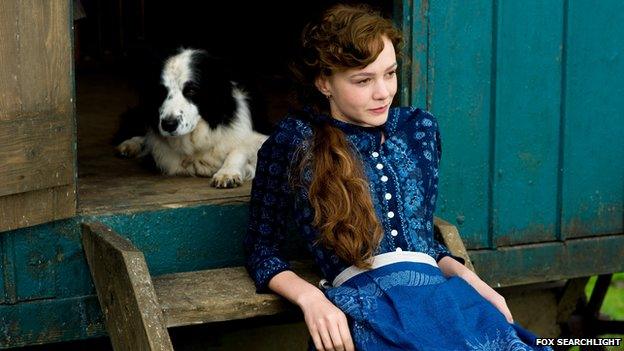
Bathsheba is very ahead of her time and "three-dimensional", says Mulligan
Despite romance playing a pivotal role in the film, Mulligan is keen to point out there are many more layers to her character.
"Of course there's a love story in there and that's beautiful, but it is not about her choosing a partner.
"It's about her growing up, discovering who she is and making better decisions from her youth to her adulthood."
Written in 1874, Far From the Madding Crowd was Hardy's fourth novel and his first major success.
It's been filmed several times - most successfully by John Schlesinger in 1967, with Julie Christie taking on the role of Bathsheba alongside Terence Stamp, Peter Finch and Alan Bates.
"There's an obvious pressure in the industry to be compared to previous actors," says Mulligan, who didn't watch Schlesinger's film, preferring to use the book as her guide.
"You feel that the audience will be looking for certain qualities in the character - especially when there is a version with someone so memorable as Julie Christie.
"But I think great stories are worth retelling and there's a reason why classics get rediscovered. That was one of the most drawing factors."
'Chemical reaction'
It was the complexity of Hardy's characters, coupled with David Nicholls' script, which drew the attention of Vinterberg to his first film since 2012's Oscar-nominated The Hunt.
The Danish director felt he had something in common with Hardy and how he "seeks into the darkness".
"When I read the script, I was immediately attracted by the very complex and beautiful characters and how Hardy and Nicholls play around with fate and fatalism," he says.
"It was just ringing out to me. It was like a chemical reaction."
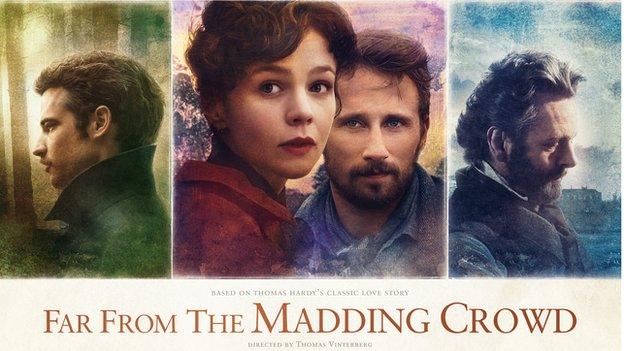
Vinterberg was attracted to the complexity of Thomas Hardy's main characters
Despite never having read the original novel, Vinterberg was eager to put his own stamp on the adaptation and make it relevant to a modern audience.
"I set out in all humbleness to make a Thomas Hardy film and not a Thomas Vinterberg film," he stresses.
"Either Hardy was a very visionary man or life hasn't changed much over 140 years.
"I guess, sadly, that the complexity of being a woman rings quite similar. It's maybe become a little bit harder now, as men expect you to be independent."
Vinterberg also admired the male characters, especially Oak, whom he describes as a "strong role model".
"He is capable of listening, hearing, seeing and obeying a woman yet still being so much a man. I thought that was inspirational and it is a rarity now.
"Hardy is playing with fate. He is trying to tell us that you can't control life, it can easily control you."
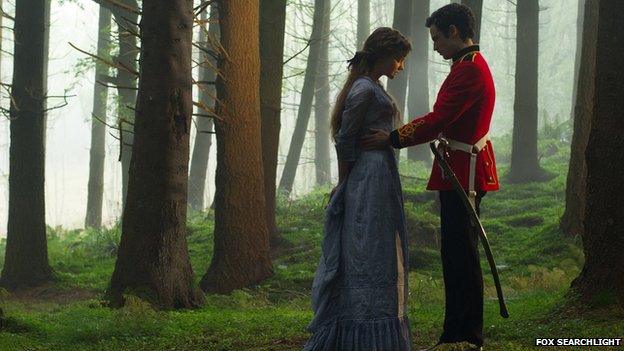
Bathsheba finds herself torn between three men, including army officer Troy (Tom Sturridge)
Filming took place entirely on location in "Hardy's county" of Dorset over nine weeks last year.
Vinterberg said he wanted to a bring "a certain truthfulness" to the film, capturing the "inner life of the landscapes and characters".
Working in countryside was "comfortable territory" for Mulligan, who spent lots of time growing up on farms with her family.
That said, working with hundreds of sheep, dogs and horses can still prove hazardous.
"They let me ride a horse and I did have a concussion after coming off. I was concussed for about six weeks of the filming, there are parts I don't remember!" the actress laughs.
"Matthias Schoenaerts thought I was acting and just carried on."
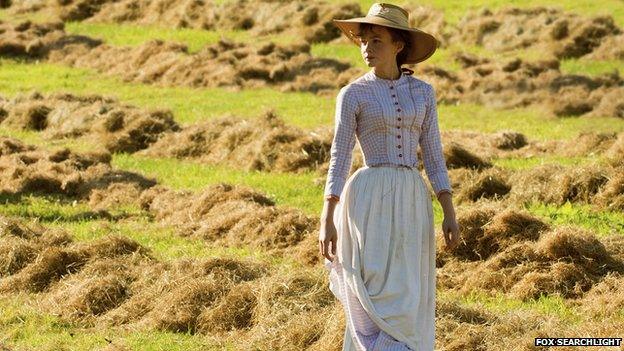
Mulligan felt in "comfortable territory" filming in the West Country
Far From the Madding Crowd isn't the only period drama Mulligan is appearing in this year.
She will continue to fly to flag for female independence in Suffragette, a film about the early 20th Century battle to win the vote for British women.
"It's a really amazing story. I think I had a very safe muted version about what women went through for the vote from school... but the actual brutality has never really been told," the actress explains.
She stars alongside Meryl Streep and Helena Bonham Carter in the movie, but accepts the world still has a long way to go in regards to female equality and empowerment.
"It's so easy to forget women were tortured to get the vote. It's not just a document of the time; it's a much bigger idea.
"Here we are, 100 years later, and yet there are still so many places in the world where women don't have that right and we are nowhere near equality.
"It's still an ongoing struggle."
Far From the Madding Crowd is out now in the UK and Ireland.
- Published1 May 2015
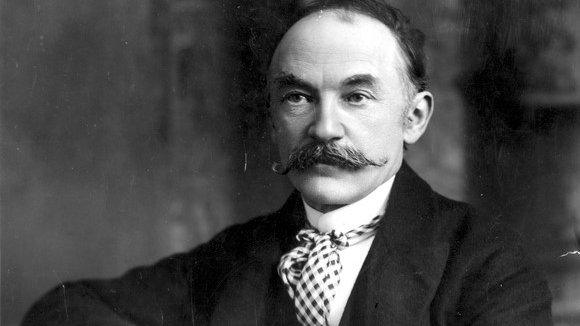
- Published29 September 2014

- Published25 August 2012
